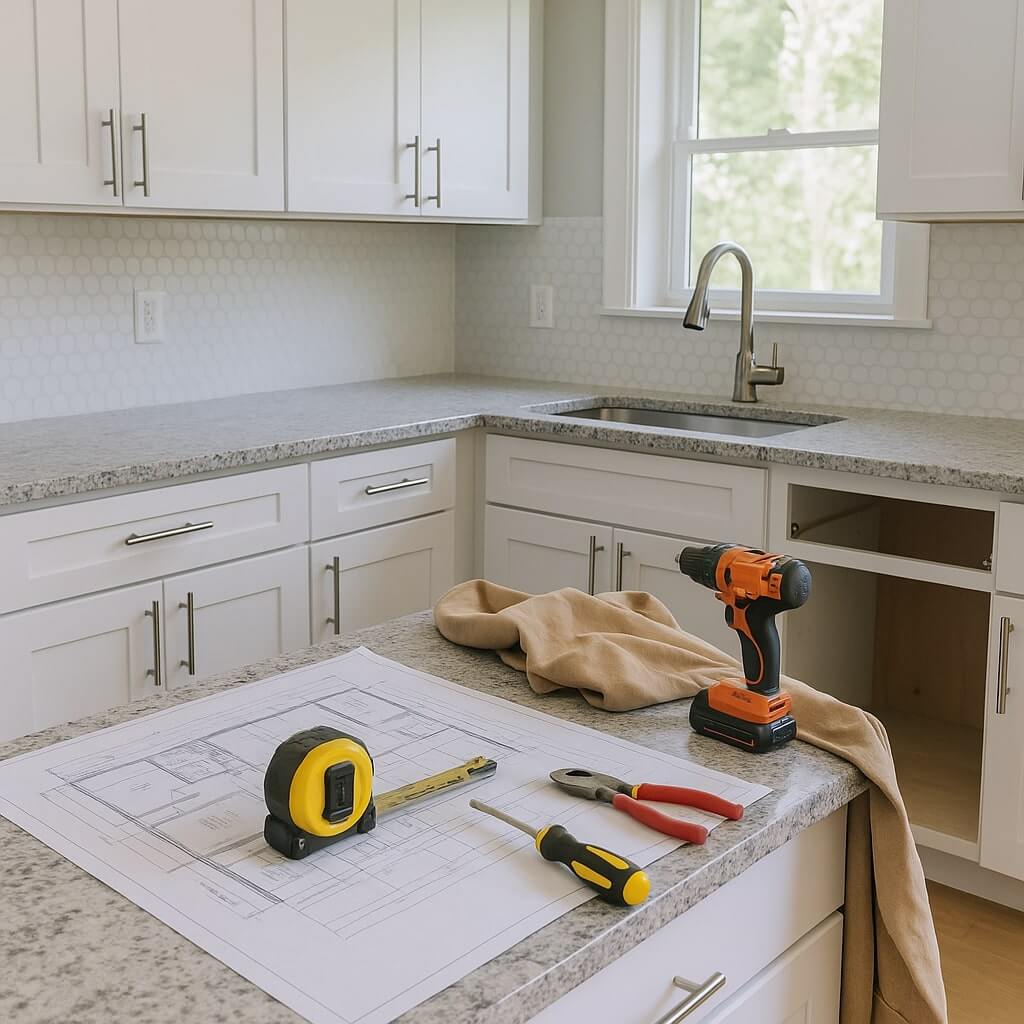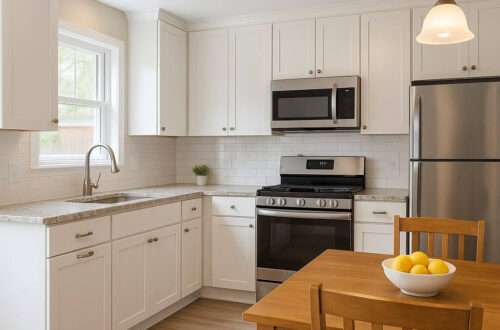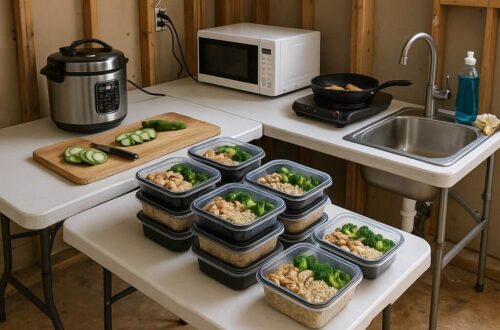When you’re planning a kitchen remodel, it’s easy to overlook key areas that can derail your project. You might underestimate costs or ignore timelines, leaving you in a tough spot later on. Functionality often takes a backseat, and communication lapses with contractors can lead to headaches. Identifying these pitfalls now can save you time and money. But what specific steps can you take to guarantee your remodel goes smoothly?
Key Takeaways
- Develop a detailed budget that includes all costs and a contingency fund for unexpected expenses.
- Establish a clear timeline with specific milestones and the flexibility to adapt to unforeseen issues.
- Prioritize functionality and workflow in your kitchen layout over purely aesthetic considerations.
- Research and obtain all necessary permits and ensure compliance with local regulations before starting your project.
- Maintain open communication with contractors and suppliers to prevent misunderstandings and delays throughout the remodeling process.
Inadequate Budgeting and Financial Planning
When you start planning your kitchen remodel, it’s tempting to focus solely on the exciting design elements, but without adequate budgeting and financial planning, you might find yourself in a tight spot.
Begin with a detailed cost estimation, accounting for materials, labor, and unexpected expenses. This allows you to create a realistic budget that gives you financial flexibility.
Consider setting aside a contingency fund for those surprise costs that always pop up. By prioritizing budgeting, you’ll not only keep your project on track, but also relieve stress, ensuring your dream kitchen doesn’t turn into a financial nightmare.
Ignoring the Importance of a Timeline

Although it might seem like a minor detail, ignoring the importance of a timeline can derail your kitchen remodel faster than you think. Establishing clear project milestones helps keep your project on track, while timeline flexibility allows you to adapt as unforeseen issues arise. Without these elements, you risk costly delays and frustration.
| Project Milestones | Estimated Timeframe | Flexibility Needed |
|---|---|---|
| Design Approval | 2 weeks | Medium |
| Demolition | 1 week | High |
| Installation | 3 weeks | Medium |
| Final Inspection | 1 week | Low |
Stay organized and proactive to guarantee success!
Failing to Consider Functionality and Workflow
While it’s easy to get caught up in aesthetics during a kitchen remodel, neglecting functionality and workflow can lead to a space that looks beautiful but doesn’t work well for your needs.
Prioritize your kitchen layout to guarantee an efficient workflow optimization. Consider the classic work triangle—sink, stove, refrigerator—when planning your design.
Keep frequently used items within reach, and allow enough space for movement. Think about how you’ll use the kitchen daily and design for those activities.
Underestimating the Need for Permits and Regulations

As you plunge into your kitchen remodel, it’s easy to overlook the critical need for permits and regulations, thinking they’re just bureaucratic hurdles.
However, skipping permit research can lead to costly fines or, worse, a halt in your project. Confirm regulation compliance by checking local codes and zoning laws before you start.
This groundwork saves you headaches down the line, allowing for a smoother renovation process. By understanding what permits you need, you’ll not only keep your remodel legal but also enhance your home’s value.
Prioritize this aspect to turn your dream kitchen into a reality without unexpected setbacks.
Neglecting to Communicate With Contractors and Suppliers
Once you’ve sorted out the permits and regulations, it’s time to focus on another vital aspect: communication with your contractors and suppliers.
Clear communication guarantees everyone’s on the same page about contractor expectations and supplier timelines. Regular updates help avoid misunderstandings and delays, so schedule consistent check-ins.
Clear communication ensures alignment on expectations and timelines, preventing misunderstandings and delays through regular updates and consistent check-ins.
Don’t hesitate to ask questions or clarify details—this isn’t just a formality; it’s fundamental for a smooth remodel. If your contractor knows your vision, they’ll work more effectively.
Similarly, keeping suppliers informed can prevent hiccups in deliveries, allowing your project to stay on track and within budget.
Effective communication is key to success!
Conclusion
By avoiding these common mistakes, you’ll set the stage for a successful kitchen remodel that not only meets your vision but also fits your budget and timeline. Remember, a well-planned project considers every detail—from finances to functionality. Stay proactive in your communication with contractors and suppliers to keep everything on track. With careful preparation, you can transform your kitchen into a space that enhances your home and lifestyle while sidestepping unnecessary headaches along the way.






